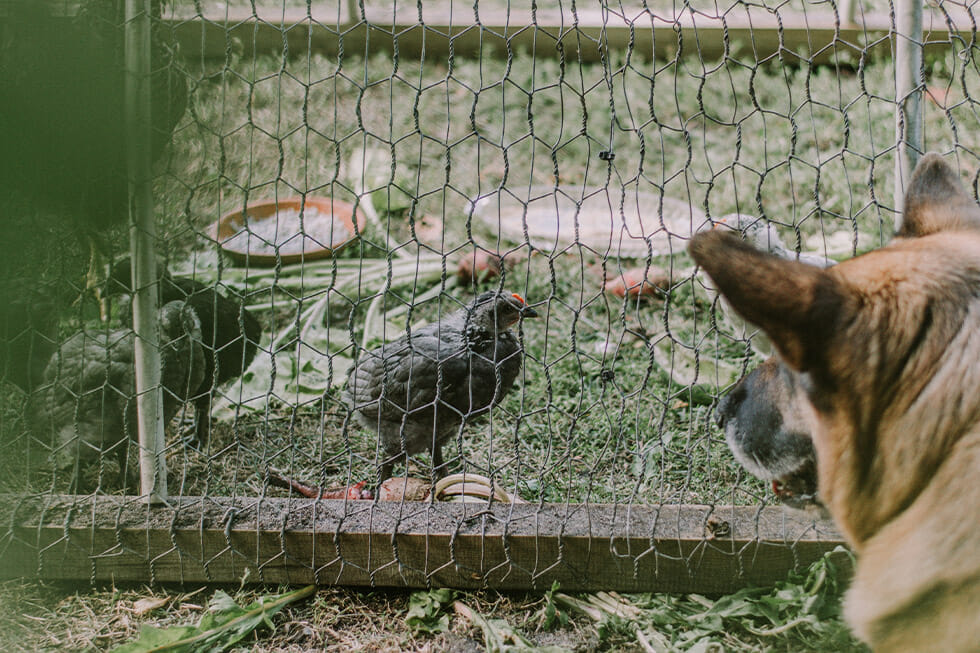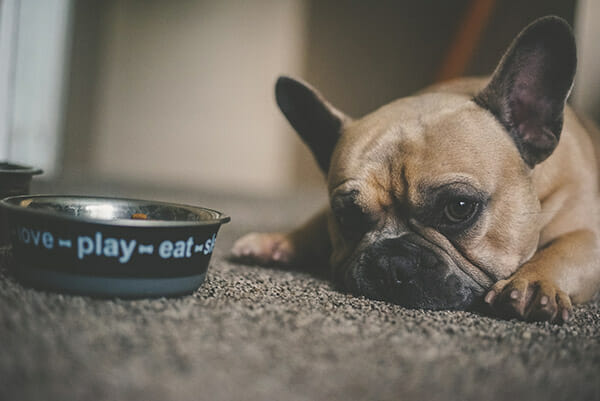
Poultry Allergies in Dogs - Symptoms, Causes & Treatment
One of the most popular proteins in the pet food industry is poultry. Chicken, ducks, and turkey are among the favourites. However, studies show poultry is also among the most common food allergens in dogs.
Does your dog have a poultry allergy? Would you want to know more about the condition and do something about it? Read on and learn more about the symptoms, causes and treatment of poultry allergies in dogs.
Poultry allergies in dogs – the causes
Poultry in dog food often occurs as mechanically extracted meat, poultry meal, or poultry by-product meal. When ingested, the digestive system breaks down the food into various absorbable elements, where the trouble begins. Enterocytes (protective cell) absorb the broken units and transport them to the blood vessels and surrounding tissue.
However, sometimes the enterocytes recognize the food elements as harmful intrusive substances – allergens. Enterocytes react by aggressively protecting the body, attempting to expel the allergen and neutralise its effects. That is when all hell can break loose. Your dog begins itching or biting their skin, or shaking their head like crazy.
Poultry allergies in dogs are really an overreaction of the immune system. Your dog’s body is just trying to fight off an unidentified element (poultry protein) in their meal. You will notice the following symptoms.
Poultry allergies in dogs – the symptoms
Symptoms of poultry allergies seldom show up immediately after a meal. Like ingesting dangerous foods, the signs could show up several minutes or even hours after feeding. They include the following:
- Severe itching. It mainly affects low-hair areas like the face, belly, inner ears, and the muzzle. Your dog will feel uncomfortable and spend a lot of time scratching himself.
- Abnormal licking. Your dog will lick the paws and the underbelly areas frequently. Your dog will also paw the face frequently and scoot across the floor to relieve the severe discomfort.
- Loss of hair in patches, wounds and even bleeding due to the itching and scratching
- Abnormal and frequent shaking of the head
- Upon close inspection, you may notice some skin rashes or hives, especially in low-hair areas like the underbelly, inner ears and paws.
- Interruptions of the breathing system. You could notice your dog wheezing, sneezing or coughing abnormally.
- Disturbed gastrointestinal (GI) system – your dog could vomit, have diarrhoea, experience excessive gas, or tummy aches.
- Anaphylactic reactions. If the dog is not attended to urgently, it could be fatal.
Many people tend to brush off signs of poultry allergies in their dogs (or any other food allergy) and take it lightly. But you should not. It’s not only when your dog experiences anaphylactic reactions that you should take him to the vet. As a caring pet parent, you should take your dog to the vet at the slightest hint of a poultry allergy.
Fortunately, you don’t have to worry about the toll these vet visits could have on your wallet. You can plan and get appropriate pet insurance coverage.
Diagnosing poultry allergies in dogs
Many dogs (especially puppies) may have a food sensitivity or intolerance. This is when they cannot break down the food into absorbable elements triggering allergy-like reactions, especially in the GI system. Your pup could have diarrhoea or vomit the food. It may seem like an allergy, but it is not a real one. Your pup’s digestive system could still be unable to handle the poultry protein.
Nevertheless, do not take it upon yourself to rule out a poultry allergy in your dog. Let the vet do it. They will take your dog through various tests and an elimination process to diagnose the allergy and single out the allergen. The vet will likely take your dog through the following steps:
- Review your dog’s health history. It includes inquiries about vaccinations (and any adverse side effects that might have occurred) weight, age, diet and any notable health incidences.
- Perform a physical exam.
- The vet will look to eliminate all other possible causes of the symptoms.
- If the symptoms persist, the vet will recommend an allergy workup. An allergy workup is a long process where your dog will go through an elimination diet, and it could take several months. The new diet would often eliminate the traditional poultry. The vet would recommend using new sources of amino acids like novel proteins or hydrolyzed proteins.
- If there is an improvement, the vet will single out poultry as the allergen and advise which foods to add to your dog’s diet and how to do it.
- If there is no improvement, the vet will request blood tests to identify your pup’s allergy in the lab.
After identifying the allergen, the vet will help you take steps to avoid it and treat it.

Photo by Chris Benson
Treating poultry allergies in dogs
Unfortunately, there is no standard treatment approach for poultry allergies in dogs. Since it is an overreaction by the body’s immune system, no vet will give your dog a pill or an injection to treat the condition. The best they can do is give medication to relieve the symptoms and recommend eliminating the allergen (after diagnosis) from your dog’s diet.
If your dog has a poultry allergy, he or she will likely have other food allergies. Therefore, the vet will also list various high-quality, low-allergen chicken-free dog food.
Conclusion
If your dog shows allergic signs after a meal, the ingredients in the food could be the cause. Reach out to a vet and go through diagnosis and treatment. If unchecked, it could get worse and cause further health complications. If your dog has a chicken allergy, it does not mean the same would happen with eggs, duck meat or turkey. A chicken allergy does not mean your dog has a general poultry allergy. Let the vets check your pet and recommend an appropriate diet.
Feature photo by Krista Mangulsone
Get the latest Pet Insider Tips & News
We offer award-winning* pet insurance policies to protect your furry friend’s health and wellbeing. Get a quote today and give your pets the care they deserve.
Archives
Categories
- Cat Care (64)
- Cats (1)
- Dog Care (124)
- Guides (28)
- Health and Nutrition (200)
- Lifestyle and Activities (219)
- Media Release (24)
- Pet Care (246)
- Rescue Dogs (1)


